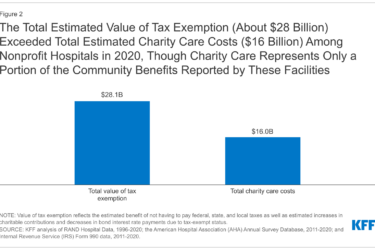Journal Sentinel reporter Guy Boulton’s investigation of Wisconsin’s ongoing failure to properly implement a statewide health care transparency law that went into effect on Jan. 1 covers the local details well, but is really set apart by Bolton’s careful explanation of why hospital pricing transparency is so tricky. You’ll have to read straight through to the last paragraph to get the full effect, so be patient.
The law in question is an “incremental” measure that was all legislators could push through in the face of industry lobbying. It requires hospitals to “provide price information on request,” but Boulton writes that there’s a problem with that, namely, “That information just doesn’t have any relation to what you and your health insurance plan will actually have to pay. Rather, it requires disclosing the equivalent of a sticker price or manufacturer’s suggested retail price – a price that almost no one pays.”
The law does require physician practices with four or more doctors to disclose prices that are closer to what commercial health plans actually pay, on average, for 25 conditions. But compiling that information proved impractical in the time allotted.
The Department of Health Services didn’t even try implementing the law’s provisions for other health care providers this year, concluding that it wasn’t practical.
As Boulton points out, “price information also has become more important as more people have health plans with high deductibles,” but setting prices in health care is tricky and varies widely. To compound the problem, “prices negotiated by health plans and health systems are confidential.”
Wisconsin may provide a cautionary tale about what could happen in other states or nationally.









